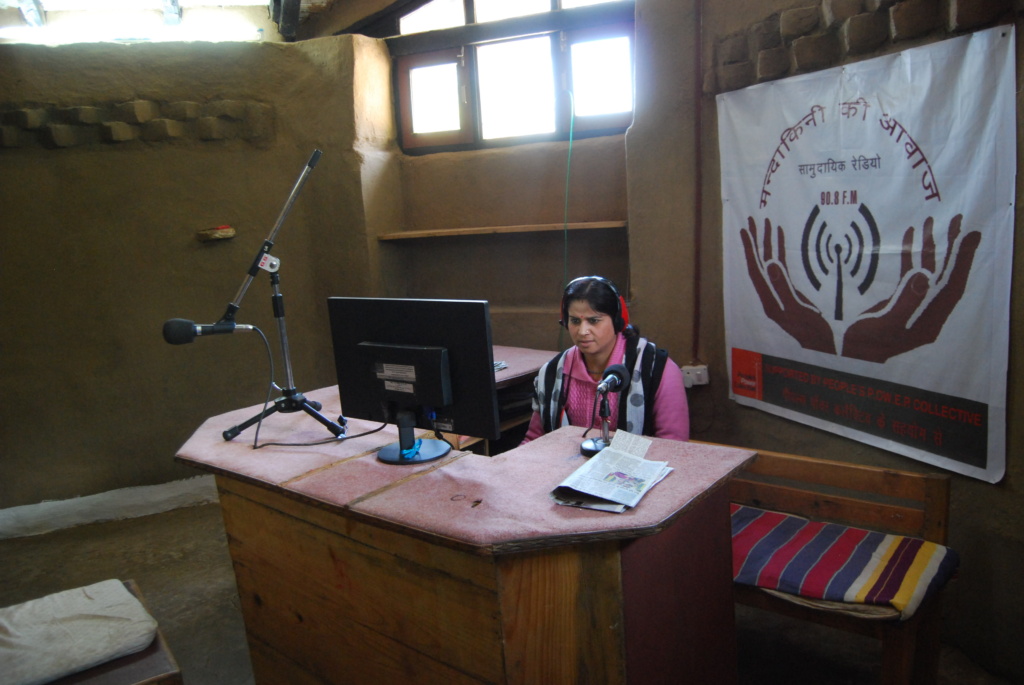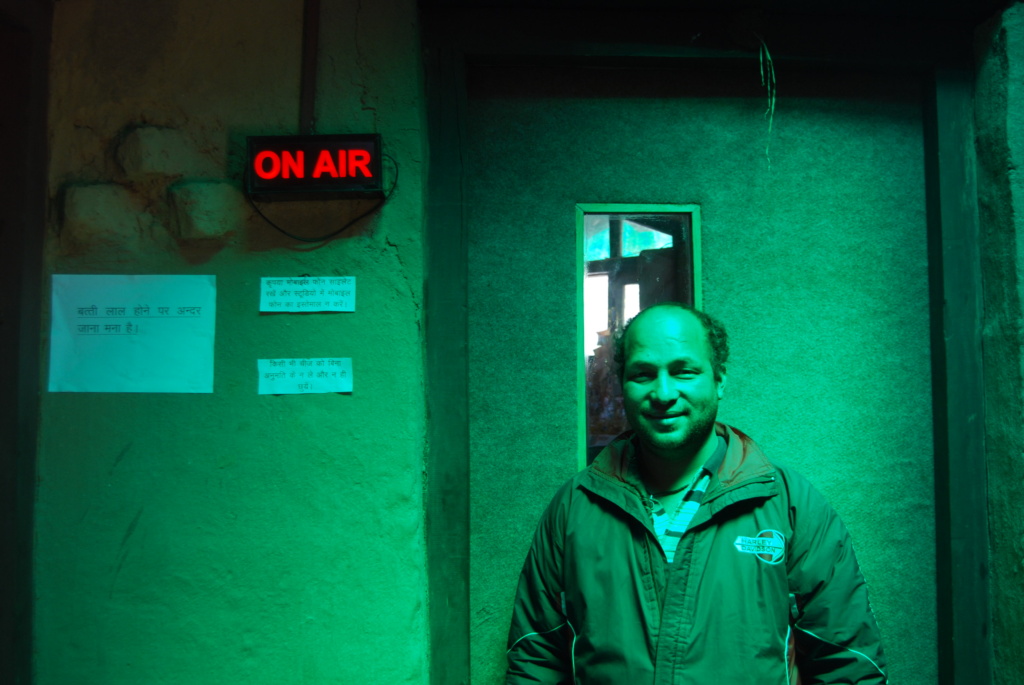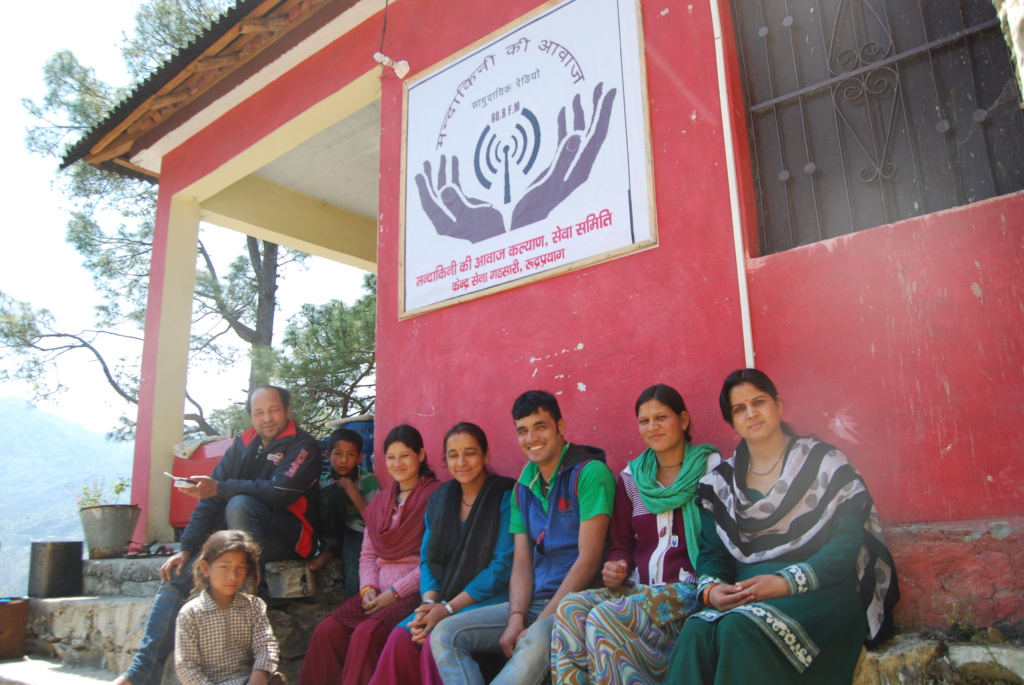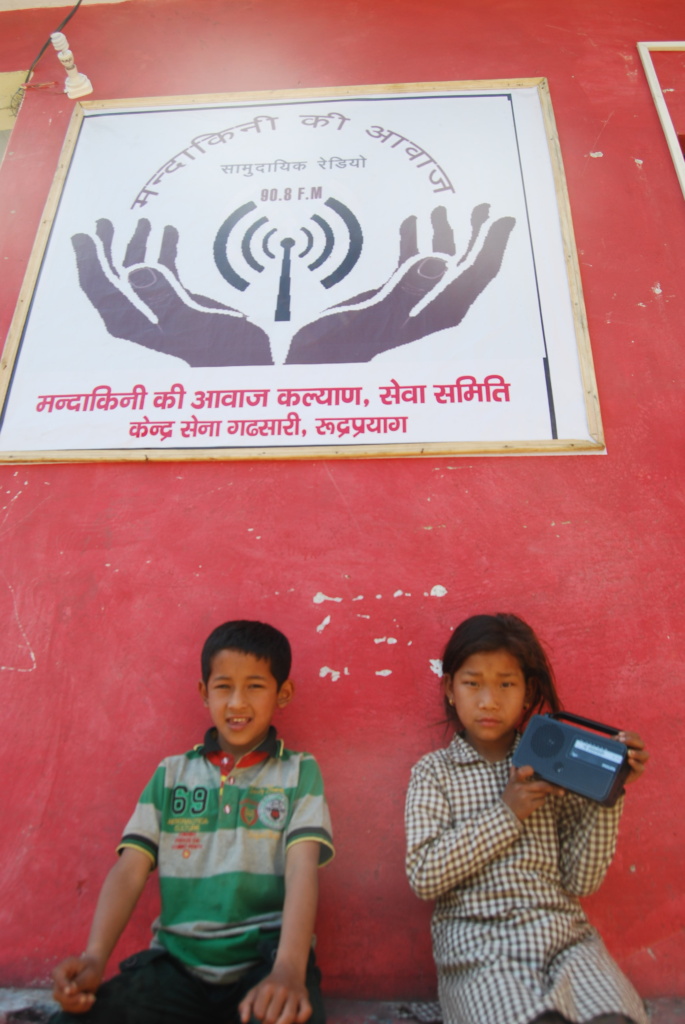Community radio, Mandakini ki Awaaz, has been changing lives of the people of Garhwal.

All photos by Shail Desai
First published: https://www.thehindubusinessline.com/blink/know/breaking-waves/article8590736.ece
Breaking waves
Born a year after the Uttarakhand floods, a community radio service near Rudraprayag is filling many gaps in information
When the floods hit Kedarnath in Uttarakhand in 2013, most of those who lay in its path were sitting ducks. As a result, while the temple town saw maximum devastation, towns and villages downstream too were washed away by the waters of the Mandakini River.
Today though, the river and the population on its banks have a voice in the form of a community radio: Mandakini ki Awaaz, which has not only brought the people closer, but has also empowered them with timely information about inclement weather in the mountains.
“We were in the process of setting up the radio station when the floods hit this region,” says Manvendra Singh Negi, station manager at Mandakini ki Awaaz. “It was difficult to see the destruction and not be able to help; we had no permission at that time. Communication had failed all over. For three months, we put the radio work aside and joined the relief operations,” he adds.

Negi’s radio journey began in 2001, when he realised the need for a local radio station.“There were many things that the current radio service wasn’t catering to, which I thought was important for people separated by mountains and valleys. Not everyone has access to newspapers and television, and getting local information across was important,” he says.
There was no policy in place for community radios until 2007. Negi applied for a licence only three years later. While the registration process took its course, Mandakini ki Awaaz connected base with People’s P.ow.e.r Collective (PPC), which guided the team on the technical aspects.
“We provided them with funding for the first 18 months. We believe in learning by doing and conducted eight modules through which we got them to understand the basic workings of a radio station. This is cutting- edge information that goes straight to people in remote areas; we are working with the state government for more such services in Uttarakhand,” says Saritha Thomas, founder of PPC and a former reporter with the British Broadcasting Corporation.
After dry runs that started about a month prior, Mandakini ki Awaaz finally delivered its first broadcast on 21 September 2014, on 90.8MHz frequency from its base in Sena Gadkari near Rudraprayag. And it’s been a steep learning curve for the six full-time employees, volunteers and the listeners alike.

“I had little idea about a computer, let alone a radio station, when I came here,” says Sivanand Nautiyal, who aired the first live show and has been working with the radio station for over two years. “We’ve gradually developed a healthy rapport with the listeners, and a good way to gauge this is the feedback we receive, which isn’t always positive,” he adds.
What started off with six hours of programming, has today hit eight. It extends to 11 1⁄2 hours on weekends when shows for women and senior citizens are hosted. The average day starts at 6am in the summers and 7am in the winters with religious songs, followed by news, weather updates, and alerts on happenings in the vicinity. The programmes are in Hindi and Garhwali.
Over the years, the radio station has developed a network of correspondents and citizen reporters, some of whom were trained via workshops and work on a volunteer basis. The team also selects important headlines from newspapers for discussions with its listeners, who call in to share their views.

While music is a regular feature like most radio stations, Mandakini ki Awaaz focusses on Garhwali and regional artistes and poets, and gives them a platform to popularise their work among the locals. During a live performance, a member of the staff visits the venue and records the event, and after editing and mixing, it is archived and played on demand. In addition, the radio station also has a sound-proof recording facility where artistes can record their work.
But community building and social service remain the soul of Mandakini ki Awaaz. “We run a paheli each morning and give listeners the day to crack it — it’s good mental exercise. These are based on old Pahari stories and beliefs, which the seniors are familiar with. We’ve seen greater interaction among the kids and youngsters, and their elders, since the latter have the answers to these riddles,” Negi says.
The radio station also takes up issues on behalf of communities, and approaches the authorities concerned for a response. The issues range from getting electricity supply arranged for a senior citizen couple, to restarting a stalled ropeway project. Another show records listeners’ queries, gets a response from the department in question, plays both on air and triggers discussions and suggestions on the topic.
“I run a local shop and pass on alerts to my customers. But my favourite time is when they play folk songs in the evening. I enjoy those over a cup of chai,” says Shakuntaladevi Negi from Bedu Bagad village.
Help has poured in from PPC and well-wishers, who contribute with essentials such as a generator that can address the problems created by electricity fluctuations. The channel also generates money through advertisements and private announcements.
And because they’re all too familiar with nature’s fury, Mandakini ki Awaaz is also in the process of obtaining permits for an emergency radio service.